Headline News Archive
 June 26, 2015 - The American Society of Agronomy (ASA) has selected the leaders of the Agricultural Model Intercomparison and Improvement Project (AgMIP) as the recipients of the 2015 ASA Presidential Award. Under the joint vision and leadership of Drs. Cynthia Rosenzweig (NASA-Goddard/Columbia University), James W. Jones (UF/FCI), Jerry Hatfield (USDA), and John Antle (Oregon State University), AgMIP has dramatically increased the coordination, transparency, and scientific rigor of agronomic modeling to address the pressing challenges of global change.
June 26, 2015 - The American Society of Agronomy (ASA) has selected the leaders of the Agricultural Model Intercomparison and Improvement Project (AgMIP) as the recipients of the 2015 ASA Presidential Award. Under the joint vision and leadership of Drs. Cynthia Rosenzweig (NASA-Goddard/Columbia University), James W. Jones (UF/FCI), Jerry Hatfield (USDA), and John Antle (Oregon State University), AgMIP has dramatically increased the coordination, transparency, and scientific rigor of agronomic modeling to address the pressing challenges of global change.This award is given to those who have influenced agronomic sciences or crop production practices so greatly that the impact of their efforts will be enduring on future science. The team will be recognized during the 2015 Annual Meeting in Minneapolis in November.
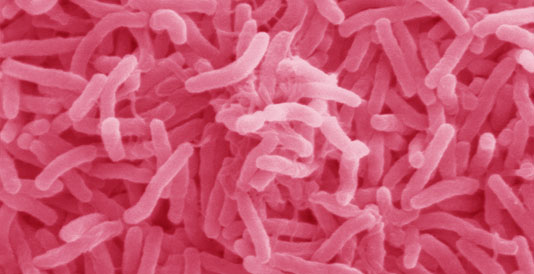 June 22, 2015 - New research suggests we may be closer to a global cholera outbreak than once believed. An article recently published in the journal Acta Tropica and co-authored by Dr. Sadie Ryan (University of Florida) shows that, under a conservative future climate scenario, there is a predicted increase in areas with environmental conditions suitable for Vibrio cholerae, the bacterium that causes cholera. This research is part of a joint UF/SUNY Upstate Medical University project looking at environmental reservoirs of waterborne disease and their response to climate. Funding was provided through the Department of Defense's Global Emerging Infections Surveillance (GEIS) program.
June 22, 2015 - New research suggests we may be closer to a global cholera outbreak than once believed. An article recently published in the journal Acta Tropica and co-authored by Dr. Sadie Ryan (University of Florida) shows that, under a conservative future climate scenario, there is a predicted increase in areas with environmental conditions suitable for Vibrio cholerae, the bacterium that causes cholera. This research is part of a joint UF/SUNY Upstate Medical University project looking at environmental reservoirs of waterborne disease and their response to climate. Funding was provided through the Department of Defense's Global Emerging Infections Surveillance (GEIS) program.Acta Tropical Journal Article
Popular Science Article
June 17, 2015 - As rising seas and South Florida’s growing environmental concerns dominate conversations of local scientists, officials, business owners and journalists, students from the MAST (Marine and Science Technology) high school at Florida International University join the Student Environmental Advocacy (SEA) Corps to document their experiences as they focus on creating solutions for South Florida’s changing environment. Their multimedia storytelling will be produced in broadcast quality stories, animations, and musical productions that will be showcased this fall.
Miami Herald Article
Miami Herald Article
June 15, 2015 - WeatherSTEM has donated a weather station to Florida A&M University’s Developmental Research School. The laboratory school last year received a $32,000 grant from the U.S. Forest Service’s Southern Research Station to create an "outside" classroom where students could explore the wonders of science and technology.
Read Full Tallahassee Democrat Article
Read Full Tallahassee Democrat Article

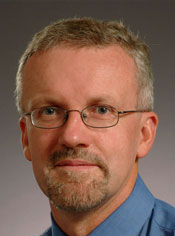 June 10, 2015 - Please join us in congratulating Drs. Andrea Dutton and Clyde Fraisse for being selected as the 2015-16 University of Florida Florida Climate Institute Faculty Fellows! Both were selected from a distinguished candidate pool for their excellent interdisciplinary climate and extension programs that contribute to the goals of the FCI.
June 10, 2015 - Please join us in congratulating Drs. Andrea Dutton and Clyde Fraisse for being selected as the 2015-16 University of Florida Florida Climate Institute Faculty Fellows! Both were selected from a distinguished candidate pool for their excellent interdisciplinary climate and extension programs that contribute to the goals of the FCI. The fellowship term is 3 years and will begin in Fall 2015. They join current FCI Faculty Fellows Drs. Tim Martin, Ellen Martin, Jane Southworth, and Jon Dain and will be honored in an award ceremony in October. Stay tuned for dates and details!
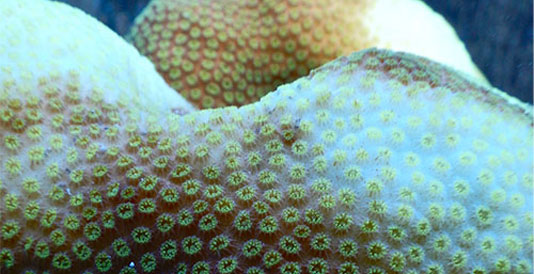 June 4, 2015 - A new research study showed why threatened Caribbean star corals sometimes swap partners to help them recover from bleaching events. The findings are important to understand the fate of coral reefs as ocean waters warm due to climate change. The University of Miami (UM) Rosenstiel School of Marine and Atmospheric Science research team placed colonies of Caribbean star coral (Orbicella faveolata) in a heated tank for one to two weeks to replicate ocean conditions that would lead to both mild and severe coral “bleaching” – when corals turn white as a result of the loss of symbiotic algae living in their tissues. The corals, collected from waters off Miami, were then allowed to recover at two different water temperatures, below and above the local average, to see if they recovered with the same or different algal partners. “Since ‘symbiont shuffling’ occurs in only some cases, we wanted to understand what drives this process and whether it could help corals adjust to climate change,” said Ross Cunning, a UM Rosenstiel School alumnus and lead author of the study. “We discovered that partner switching in Caribbean star corals is dependent upon the severity of the bleaching event and the temperature during recovery.”
June 4, 2015 - A new research study showed why threatened Caribbean star corals sometimes swap partners to help them recover from bleaching events. The findings are important to understand the fate of coral reefs as ocean waters warm due to climate change. The University of Miami (UM) Rosenstiel School of Marine and Atmospheric Science research team placed colonies of Caribbean star coral (Orbicella faveolata) in a heated tank for one to two weeks to replicate ocean conditions that would lead to both mild and severe coral “bleaching” – when corals turn white as a result of the loss of symbiotic algae living in their tissues. The corals, collected from waters off Miami, were then allowed to recover at two different water temperatures, below and above the local average, to see if they recovered with the same or different algal partners. “Since ‘symbiont shuffling’ occurs in only some cases, we wanted to understand what drives this process and whether it could help corals adjust to climate change,” said Ross Cunning, a UM Rosenstiel School alumnus and lead author of the study. “We discovered that partner switching in Caribbean star corals is dependent upon the severity of the bleaching event and the temperature during recovery.”UM Press Release
June 3, 2015 - First impressions are important. So much so that even armed with new information, many people won’t change their minds about genetically modified foods and global warming, a new University of Florida study led by Brandon McFadden shows. Study participants were asked to assess the extent to which they believe human involvement caused global warming. They were given choices ranging from “much less involved” to “much more involved.” The study showed that before they received the information, 64 percent believed human actions are causing global warming; 18 percent were not sure and 18 percent did not believe human actions are to blame. After receiving scientific information about global warming, about 50 percent of participants believed even more strongly that human actions lead to global warming, while 44 percent were not swayed by the information, the study showed. "Possibly, the best indicator for whether a person will adopt scientific information is simply what a person believes before receiving the information," McFadden said.
UF Press Release
Food Policy Journal Article
UF Press Release
Food Policy Journal Article
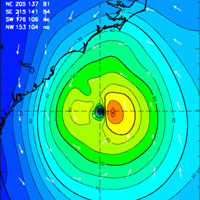 June 3, 2015 - In an article in The Conversation, Drs. Vasu Misra and Mark Powell (FSU) discuss a new method they've developed to project a hurricane’s strength that takes into account the size of the tropical cyclone. Their method, called the Integrated Kinetic Energy (IKE) index, considers the distribution of the surface wind speed around the center of the storm, unlike the traditional Saffir-Simpson scale that depends on a point measurement of the maximum wind speed. By measuring total energy, they can make a better prediction as to destructive potential as opposed to just looking at wind speed at a single point location.
June 3, 2015 - In an article in The Conversation, Drs. Vasu Misra and Mark Powell (FSU) discuss a new method they've developed to project a hurricane’s strength that takes into account the size of the tropical cyclone. Their method, called the Integrated Kinetic Energy (IKE) index, considers the distribution of the surface wind speed around the center of the storm, unlike the traditional Saffir-Simpson scale that depends on a point measurement of the maximum wind speed. By measuring total energy, they can make a better prediction as to destructive potential as opposed to just looking at wind speed at a single point location.The Conversation Article
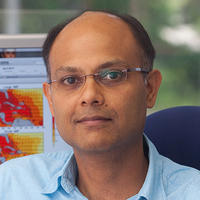 June 2, 2015 - Popular opinion says that tropical storms and hurricanes that make landfall mitigate droughts in the southeastern United States. But that simply isn’t true, according to a Florida State University researcher. Vasu Misra, associate professor of meteorology and co-director of the FCI and FSU, disputed the commonly held belief in an article published in the journal Climate Dynamics. “The perception that land-falling tropical cyclones serve to replenish the terrestrial water sources in many of the small watersheds in the southeastern U.S. seems to be a myth,” Misra said. “This perception is widespread because the southeastern United States has the largest share of land-falling tropical cyclones in the country.” Misra and Satish Bastola from Georgia Institute of Technology examined historical rainfall records and from that, created a soil moisture-based drought index for 28 watersheds across the southeastern United States for a 58-year period. They then reconstructed the database by eliminating the rainfall on days when a tropical storm or hurricane had made landfall. The end result? Soil moisture levels in these watersheds remained about the same.
June 2, 2015 - Popular opinion says that tropical storms and hurricanes that make landfall mitigate droughts in the southeastern United States. But that simply isn’t true, according to a Florida State University researcher. Vasu Misra, associate professor of meteorology and co-director of the FCI and FSU, disputed the commonly held belief in an article published in the journal Climate Dynamics. “The perception that land-falling tropical cyclones serve to replenish the terrestrial water sources in many of the small watersheds in the southeastern U.S. seems to be a myth,” Misra said. “This perception is widespread because the southeastern United States has the largest share of land-falling tropical cyclones in the country.” Misra and Satish Bastola from Georgia Institute of Technology examined historical rainfall records and from that, created a soil moisture-based drought index for 28 watersheds across the southeastern United States for a 58-year period. They then reconstructed the database by eliminating the rainfall on days when a tropical storm or hurricane had made landfall. The end result? Soil moisture levels in these watersheds remained about the same.FSU Press Release
Climate Dynamics Journal Article
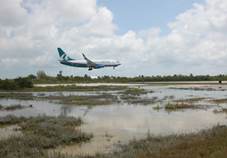 May 29, 2015 - Summertime promises no slowdown of activity at FAU’s Center for Environmental Studies (CES). The popular US Geological Survey series of technical meetings continues with two timely and informative events on the FAU Davie Campus. And for those researching or adapting to sea-level rise, CES announces its ongoing service, Sea-Level Rise Expeditions offered throughout South Florida.
May 29, 2015 - Summertime promises no slowdown of activity at FAU’s Center for Environmental Studies (CES). The popular US Geological Survey series of technical meetings continues with two timely and informative events on the FAU Davie Campus. And for those researching or adapting to sea-level rise, CES announces its ongoing service, Sea-Level Rise Expeditions offered throughout South Florida.Precipitation Downscaling
On June 22 & 23, 2015, USGS-FAU Precipitation Downscaling Technical Meeting aims to communicate state-of-the-art downscaling science in order to improve Everglades science and restoration. Modelers and downscalers will present salient and credible modeling and monitoring applications and discuss with other scientists and decision-makers what other products are needed. Dr. Michael E. Mann, a leading climate modeler from Penn State University, will share some of his insights. For more information contact Mary Beth Hartman at This email address is being protected from spambots. You need JavaScript enabled to view it. or (954) 236-1203 and download the event flyer.
Sea-Level Rise Expeditions
Looking for a field trip? CES announces a resource for media, researchers and practitioners in the area of sea-level rise. Starting immediately, FAU/CES Sea Level Rise Expeditions bring you to the leading edge of current and future sea-level rise issues facing South Florida. CES offers half-day, full-day, and multi-day expeditions to the urban and natural environments of Monroe, Miami-Dade, Broward and Palm Beach Counties. Tours showcase a range of impacts and opportunities resulting from sea-level rise from science and local government to business and Industry. FAU/CES SLR Expeditions are tailored to accommodate specific interests such as water infrastructure, tourism, real estate or trade concerns or a geographic focus on a specific city, county or the region. For more information contact Keren Bolter at This email address is being protected from spambots. You need JavaScript enabled to view it..
Invasive Species
Judging by the weather, September might still be considered summer in South Florida, and CES will end the season with a hot topic. The USGS-FAU Invasive Species Technical Meeting will convene academics, practitioners, scientists and decision-makers to explore two important questions: What are the next steps for risk assessment? And how do we collectively design an implementation strategy? Stay tuned for further information on the date and agenda for this two-day event. For more information contact Mary Beth Hartman at This email address is being protected from spambots. You need JavaScript enabled to view it. or (954) 236-1203.
We look forward to seeing you on the FAU Davie Campus this summer.
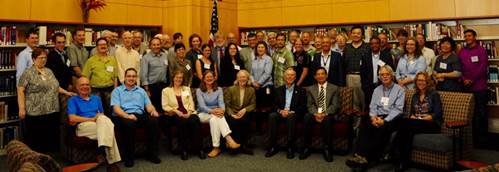 May 28, 2015 - A workshop was organized by AgMIP and USDA and held during May 11-15 at the National Agricultural Library (NAL) in Beltsville, MD. Fifty-five participants attended the week-long workshop.
May 28, 2015 - A workshop was organized by AgMIP and USDA and held during May 11-15 at the National Agricultural Library (NAL) in Beltsville, MD. Fifty-five participants attended the week-long workshop. The goals of the workshop were to understand how to harmonize agricultural data collected from sites across the USA, demonstrate how a National Agricultural Data Network (NADN) might work, develop ideas for a roadmap on how to create such a network, and make recommendations to the USDA for developing an operational data network. Specific objectives were to:
1) Implement a prototype system to harmonize databases from representative NIFA and ARS projects that will make data accessible, usable, and interoperable for multiple crop models and other analyses;
2) Expand AgMIP IT tools used to operate multiple crop models to include nitrogen and phosphorus inputs and outputs and to complete translators for additional US-based cropping system models;
3) Select and document metadata and minimum variables that should be included in harmonizing data in other USDA research areas (e.g., dairy, beef, Life Cycle Assessment, and biofuels);
4) Create recommendations for USDA and a draft roadmap that will lead to broader harmonization of data with capabilities for on-line publication of harmonized, discoverable, accessible, and usable datasets.
The workshop was highly successful. An AgMIP database node was implemented on the server at the NAL with datasets from seven locations across the US harmonized as a prototype. A shared vision was developed for a “distributed network of linked, compatible agricultural databases into which researchers provide data that are easily shared among users with maximum impact of contributions and harmonized for easy discovery, open access and usability in models and statistical analyses.” The complexity of agricultural challenges facing the nation and the world are such that agricultural data stewardship and advanced tools are needed to enable sustainable production that can meet future national and international food, fiber, and bioenergy needs. A National Agricultural Data Network will accelerate progress towards sustainability and resilience to a changing climate by greatly enhancing the efficiency with which data from USDA projects are applied to research on agricultural systems analysis and modeling. A Roadmap for developing the NADN was provided to USDA along with recommendations.
For a full report, visit the AgMIP site at www.agmip.org
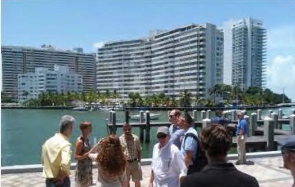 May 28, 2015 - On July 20-22, 2015, the Southeast Florida Regional Climate Change Compact (“the Compact”) will convene Resilient Redesign II in collaboration with FCI. Hosted by the Florida Center for Environmental Studies on the FAU Davie Campus, the workshop will provide opportunities for researchers and practitioners to envision South Florida’s future. Architects, urban design experts, social scientists and regional planners will attend.
May 28, 2015 - On July 20-22, 2015, the Southeast Florida Regional Climate Change Compact (“the Compact”) will convene Resilient Redesign II in collaboration with FCI. Hosted by the Florida Center for Environmental Studies on the FAU Davie Campus, the workshop will provide opportunities for researchers and practitioners to envision South Florida’s future. Architects, urban design experts, social scientists and regional planners will attend. Last year’s workshop in Miami convened a collaboration of experts from the Netherlands and regional stakeholders met to design strategies intended to serve as models of resilience for communities throughout the region. In working group sessions, three case studies--Dense Urban, Urban, and Suburban—communities were examined for their ability to respond to climate change and disasters, among other pressures.
This time with contribution from FCI, the group will study new case studies including historical preservation sites impacted by sea-level rise and a goal to see these ideas through into action. Sites chosen for this year are locations in Key West in Monroe County, the City of Hollywood in Broward County, and Delray Beach in Palm Beach County. Teams may participate in an optional local site visits on July 19 and will then come together to develop site-specific resilient design solutions over the next two days. Presentations will be held on the morning of July 22 at the FAU Davie Campus.
In addition to the ongoing participation of FCI affiliates in various Compact Working Groups, the Resilient Redesign collaboration is another opportunity for the two partner organizations to respond to climate change issues and opportunities.
For more information on Resilient Redesign II, please contact Nancy Schneider at This email address is being protected from spambots. You need JavaScript enabled to view it..
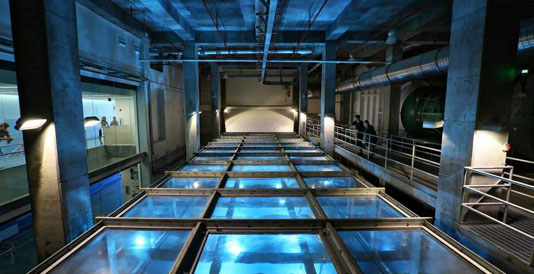 May 22, 2015 - The National Oceanic and Atmospheric Administration (NOAA) awarded the Cooperative Institute for Marine and Atmospheric Studies (CIMAS) up to $125 million to fund the consortium’s activities over the next five years. CIMAS, which is based at the University of Miami (UM) Rosenstiel School of Marine and Atmospheric Science, brings together the research and educational resources of ten partner universities to increase scientific understanding of Earth’s oceans and atmosphere within the context of NOAA’s mission.
May 22, 2015 - The National Oceanic and Atmospheric Administration (NOAA) awarded the Cooperative Institute for Marine and Atmospheric Studies (CIMAS) up to $125 million to fund the consortium’s activities over the next five years. CIMAS, which is based at the University of Miami (UM) Rosenstiel School of Marine and Atmospheric Science, brings together the research and educational resources of ten partner universities to increase scientific understanding of Earth’s oceans and atmosphere within the context of NOAA’s mission.The renewal award, and increase in funding, was based upon an “Outstanding” rating CIMAS received during the current award period’s performance review (2010-2015) by a NOAA Science Advisory Board subcommittee. Under the new cooperative agreement, Florida Institute of Technology (FIT) has joined the Florida and Caribbean-based university consortium, which includes: Florida Atlantic University, Florida International University, Florida State University, Nova Southeastern University, University of Puerto Rico, University of Florida, University of South Florida and University of the Virgin Islands. "CIMAS has rapidly grown in recent years and now serves a much broader NOAA community in addressing NOAA’s climate, weather and ecosystem goals," said Peter Ortner, CIMAS director and research professor at the UM Rosenstiel School.
The cooperative institute’s current research priorities, which include: improved hurricane forecasting, facilitating the implementation of ecosystem-based ocean management, prediction of climate on increasingly short time scales and support of the Global Ocean Observing System, are expected to continue over the next five years.
UM Press Release
Miami Herald Article
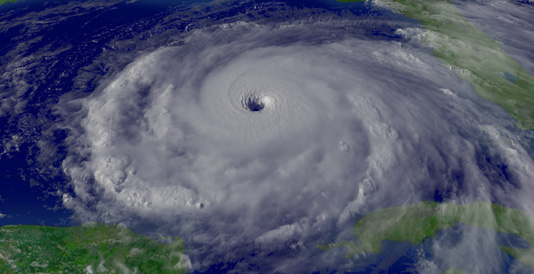 May 19, 2015 - Climate change may be the driving force behind fewer, yet more powerful hurricanes and tropical storms, says a Florida State geography professor. In a paper published today by Nature Climate Change, Professor Jim Elsner (FSU) and his former graduate student Namyoung Kang found that rising ocean temperatures are having an effect on how many tropical storms and hurricanes develop each year. Elsner and Kang projected that over the past 30 years, storm speeds have increased on average by 1.3 meters per second — or 3 miles per hour — and there were 6.1 fewer storms than there would have been if land and water temperatures had remained constant.
May 19, 2015 - Climate change may be the driving force behind fewer, yet more powerful hurricanes and tropical storms, says a Florida State geography professor. In a paper published today by Nature Climate Change, Professor Jim Elsner (FSU) and his former graduate student Namyoung Kang found that rising ocean temperatures are having an effect on how many tropical storms and hurricanes develop each year. Elsner and Kang projected that over the past 30 years, storm speeds have increased on average by 1.3 meters per second — or 3 miles per hour — and there were 6.1 fewer storms than there would have been if land and water temperatures had remained constant.FSU Press Release
Nature Climate Change Journal Article
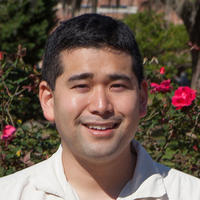 May 12, 2015 - Extreme heat kills more people in the United States than hurricanes, with many victims succumbing to heat inside their own homes. Now, a Florida State University researcher will use an Environmental Protection Agency research grant to study health outcomes for people vulnerable to extreme building temperatures. Christopher Uejio, an assistant professor in the FSU Department of Geography, will be the principal investigator on the three-year, $500,000 EPA study, “Indoor Environment and Emergency Response Health Outcomes.” The study’s co-investigator is James Tamerius of the University of Iowa, one of three institutional partners in the research, along with the Fire Department of the City of New York (FDNY) and Grady Emergency Medical Service (EMS) of Atlanta, Ga.
May 12, 2015 - Extreme heat kills more people in the United States than hurricanes, with many victims succumbing to heat inside their own homes. Now, a Florida State University researcher will use an Environmental Protection Agency research grant to study health outcomes for people vulnerable to extreme building temperatures. Christopher Uejio, an assistant professor in the FSU Department of Geography, will be the principal investigator on the three-year, $500,000 EPA study, “Indoor Environment and Emergency Response Health Outcomes.” The study’s co-investigator is James Tamerius of the University of Iowa, one of three institutional partners in the research, along with the Fire Department of the City of New York (FDNY) and Grady Emergency Medical Service (EMS) of Atlanta, Ga.FSU Press Release
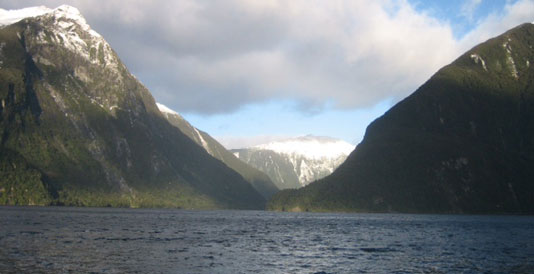 May 5, 2015 - In the effort to remove excess carbon dioxide from our atmosphere, mankind has an unlikely ally: fjords. The dramatic, glacier-carved inlets found from Alaska to Antarctica capture and store carbon better than other open-water marine systems, removing it from the atmosphere, says a University of Florida study published today in the journal Nature Geoscience. “Carbon sequestration is the big buzzword, but we’re still getting a handle on how it works,” said Thomas Bianchi, a UF geochemist on the team that made the discovery. In order to make informed land-use decisions and accurate climate predictions, “finding and understanding these hot spots is critical,” he said.
May 5, 2015 - In the effort to remove excess carbon dioxide from our atmosphere, mankind has an unlikely ally: fjords. The dramatic, glacier-carved inlets found from Alaska to Antarctica capture and store carbon better than other open-water marine systems, removing it from the atmosphere, says a University of Florida study published today in the journal Nature Geoscience. “Carbon sequestration is the big buzzword, but we’re still getting a handle on how it works,” said Thomas Bianchi, a UF geochemist on the team that made the discovery. In order to make informed land-use decisions and accurate climate predictions, “finding and understanding these hot spots is critical,” he said.UF Press Release
Nature Geoscience Peer-Reviewed Journal Article
Related Nature Geoscience News & Views Article
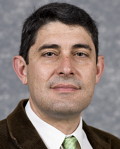 April 30, 2015 - Dr. Rafael Muñoz-Carpena, Professor at IFAS Agricultural and Biological Engineering Department, has been elected Corresponding Member ("Académico") of the Royal Academy of Engineering of Spain.
April 30, 2015 - Dr. Rafael Muñoz-Carpena, Professor at IFAS Agricultural and Biological Engineering Department, has been elected Corresponding Member ("Académico") of the Royal Academy of Engineering of Spain. The mission of the Royal Academy of Engineering of Spain is focused on the promotion of Spanish engineering in our society and on providing independent advice to public and private institutions on engineering-related matters. For this purpose it boasts 60 permanent members and 40 corresponding members from 14 countries who form a network of excellent engineering and architecture professionals. Another important objective of the Royal Academy of Engineering of Spain is to offer a forum that enables the exchange of knowledge, ideas and opinions between the engineering and corporate sectors. In short, the Academy perceives engineering as an essential ingredient of the progress and welfare of our society and, through its activities, pursues and promotes the integration of engineering in the culture of our country.
The Royal Academy of Engineering of Spain has its headquarters in the beautiful XVII century Palace of the Marquis of Villafranca, in the historical centre of Madrid, very near to the Royal Palace.
Professor Muñoz-Carpena will present his inaugural speech and receive the distinctive emblems of his new rank of "Académico" (Royal Academy medal and Member Diploma) at the ceremony in Madrid later this year.
Dr. Rafael Muñoz-Carpena has also been selected by the American Society for Agricultural and Biological Engineers (ASABE) to receive the 2015 Hancor Soil and Water Engineering Award for his exceptional accomplishments in hydrological and integrated environmental modeling and education of next generation of soil and water scientists and engineers. He has also been selected Fellow of ASABE this year.
Congratulations to Rafa on these great recognitions!
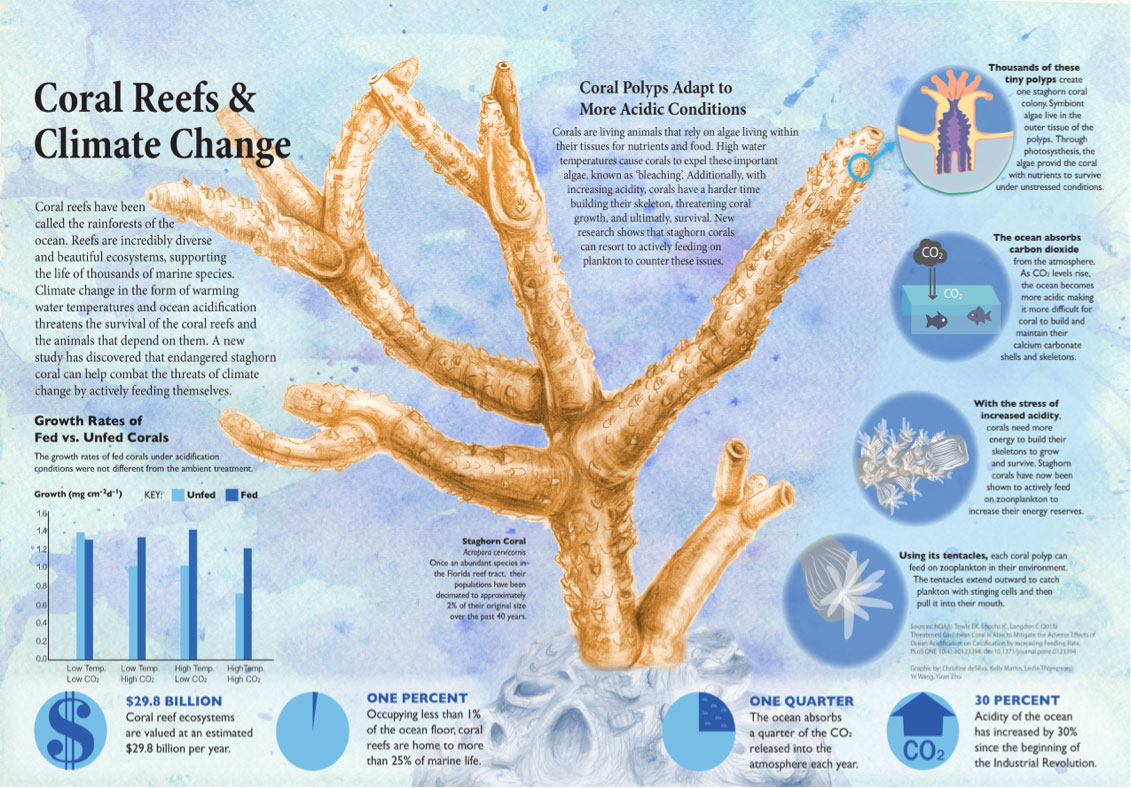 May 5, 2015 - Most people know the health benefits of taking daily supplements, but what about endangered corals? A new study led by University of Miami (UM) Rosenstiel School of Marine and Atmospheric Science researchers found that the critically endangered Staghorn coral may benefit from supplemental nutrition to mitigate the adverse impacts of global climate change. The results are the first to document that an endangered coral species, which was once found widely throughout South Florida and the Caribbean, can buffer the effects of increased CO2 in the ocean by increasing feeding rates. “Our study shows a pathway to resilience previous unknown for this particular species, which was once a dominant species in South Florida,” said UM Rosenstiel School Ph.D. student Erica Towle, lead author of the study. “This has implications for how we care for and where we out-plant Staghorn corals back onto reefs to give them the best chance for resilience possible in the future.”
May 5, 2015 - Most people know the health benefits of taking daily supplements, but what about endangered corals? A new study led by University of Miami (UM) Rosenstiel School of Marine and Atmospheric Science researchers found that the critically endangered Staghorn coral may benefit from supplemental nutrition to mitigate the adverse impacts of global climate change. The results are the first to document that an endangered coral species, which was once found widely throughout South Florida and the Caribbean, can buffer the effects of increased CO2 in the ocean by increasing feeding rates. “Our study shows a pathway to resilience previous unknown for this particular species, which was once a dominant species in South Florida,” said UM Rosenstiel School Ph.D. student Erica Towle, lead author of the study. “This has implications for how we care for and where we out-plant Staghorn corals back onto reefs to give them the best chance for resilience possible in the future.”UM Press Release
PLOS ONE Article
YouTube Video
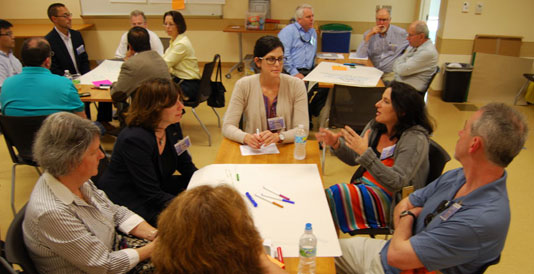 April 30, 2015 - On April 17, 2015, FCI hosted the first joint working meeting with The Southeast Florida Regional Climate Change Compact (Compact) at the Center for Environmental Studies at Florida Atlantic University Davie Campus. Together the group identified collaborative opportunities to help Florida meet the challenges of global climate change. Members of the Compact Steering Committee from Broward, Miami-Dade, Monroe and Palm Beach Counties, as well as researchers from Florida Atlantic University, Florida International University, Florida State University, University of Miami and University of Florida presented. Representatives from Florida Institute for Health Innovation, the South Florida Water Management District, Southeast Climate Consortium and Nova Southeastern University attended. Highlights included an invitation to work together on the Broward-led Resilient Redesign II, a continuation of the effort started in 2014 selecting three pilot sites for climate change related redevelopment. Miami-Dade announced that FCI would be welcome to assist for their Indicators Working Group, particularly with health impacts.
April 30, 2015 - On April 17, 2015, FCI hosted the first joint working meeting with The Southeast Florida Regional Climate Change Compact (Compact) at the Center for Environmental Studies at Florida Atlantic University Davie Campus. Together the group identified collaborative opportunities to help Florida meet the challenges of global climate change. Members of the Compact Steering Committee from Broward, Miami-Dade, Monroe and Palm Beach Counties, as well as researchers from Florida Atlantic University, Florida International University, Florida State University, University of Miami and University of Florida presented. Representatives from Florida Institute for Health Innovation, the South Florida Water Management District, Southeast Climate Consortium and Nova Southeastern University attended. Highlights included an invitation to work together on the Broward-led Resilient Redesign II, a continuation of the effort started in 2014 selecting three pilot sites for climate change related redevelopment. Miami-Dade announced that FCI would be welcome to assist for their Indicators Working Group, particularly with health impacts. In a dynamic networking exercise, Compact and university partners explored two questions central to the meeting: How can the FCI better work with the Compact? How can the Compact better work with the FCI? A detailed list of needs and action items resulted. For example, Compact partners expressed the need to develop climate change economic models, risk assessment information, and communication strategies.
While some opportunities lend themselves to participation from universities in southeast Florida, joint efforts are open to all FCI members. Since the formal inception of the FCI-Compact partnership in 2014, both partners have expressed the desire for an inclusive working relationship promoting the ideals of the agreement: (1) to seek better alignment between public sector information/management needs and ongoing university research, and (2) to improve coordination between the Compact and FCI universities in pursuing competitive funding opportunities. Achieving these goals will ensure that together both partners are well-positioned for competitive grant opportunities and are jointly advancing Florida’s environmental, social, and economic sustainability through applied research and planning collaborations. April’s workshop represented another step on that journey.
For more information on the FCI-Compact Partnership, please contact This email address is being protected from spambots. You need JavaScript enabled to view it..












